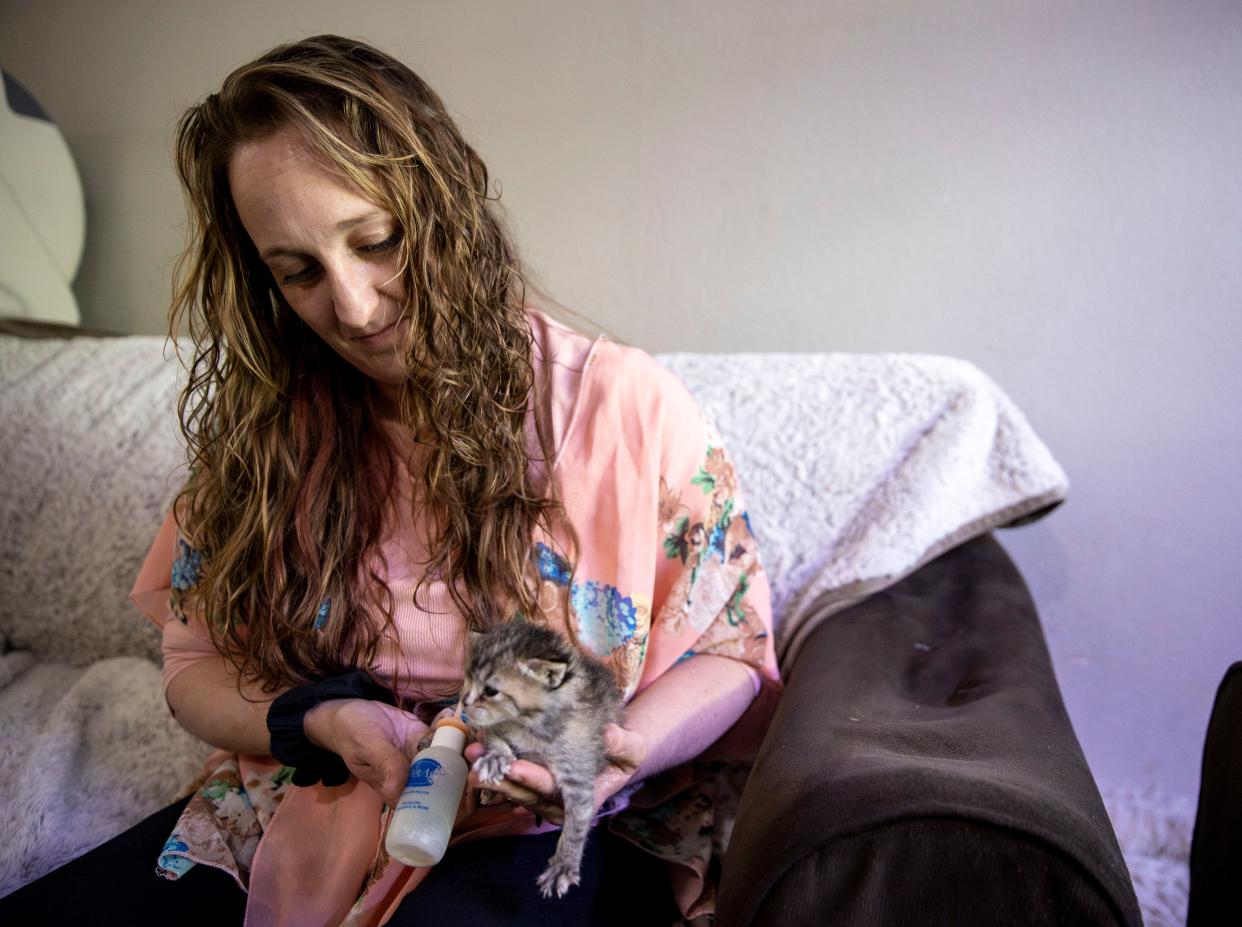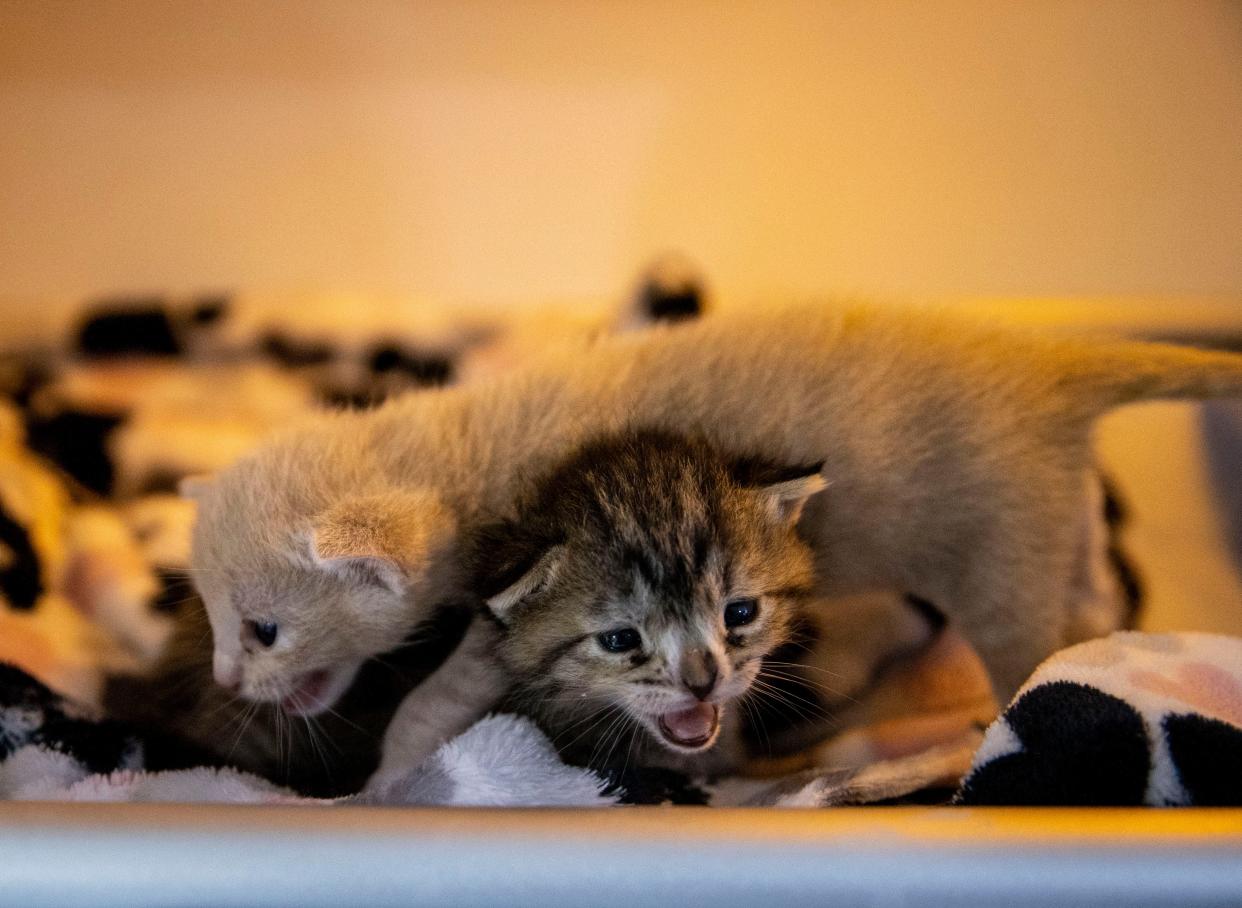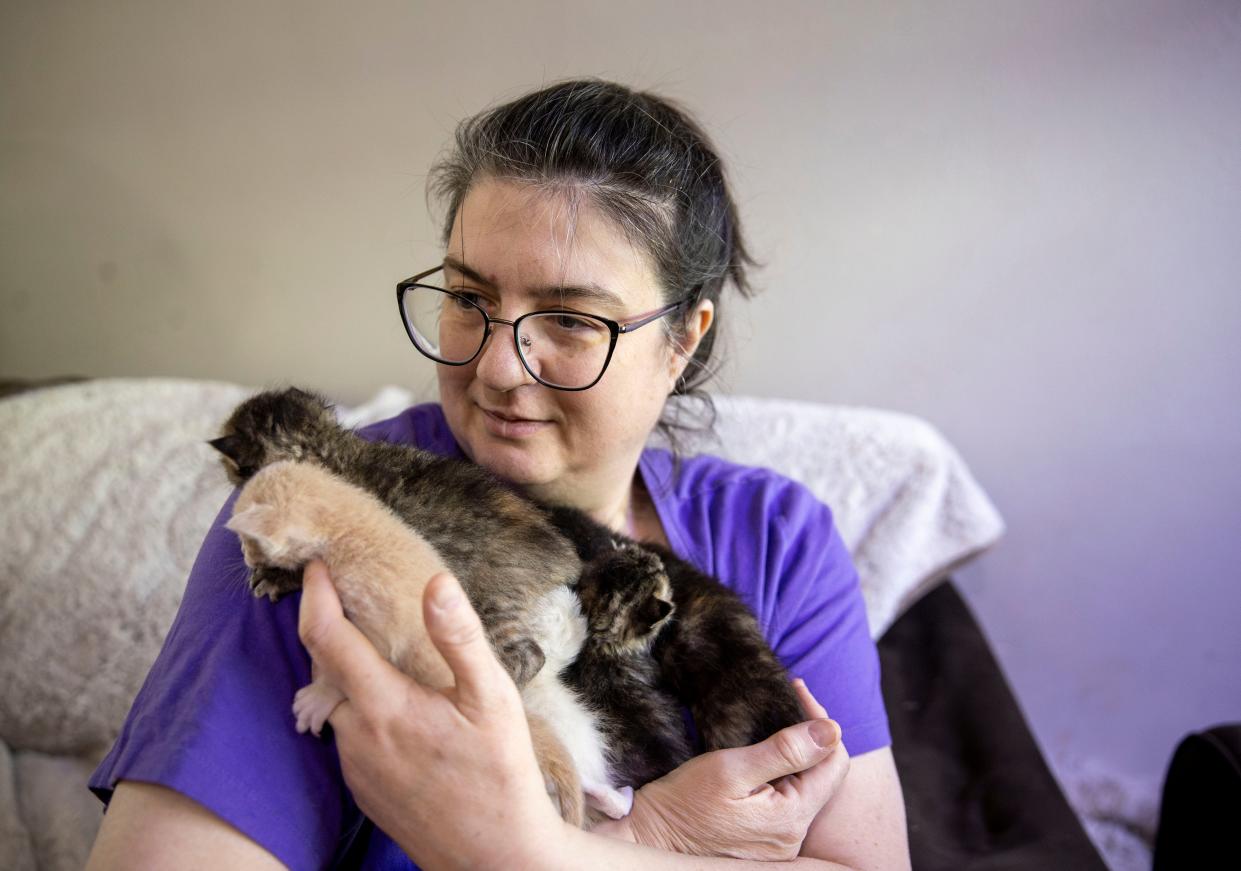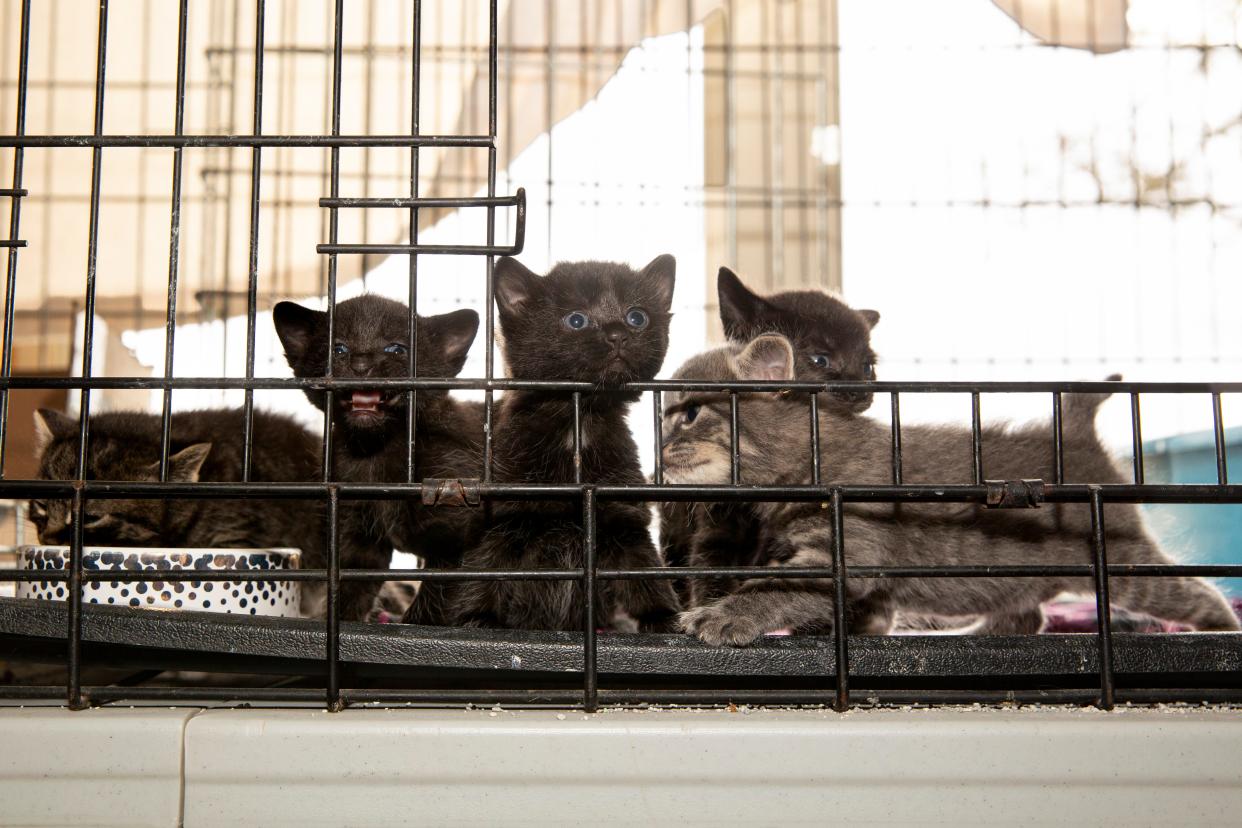Animal rescues groups urge Oregon Department of Agriculture to rethink fee changes
Animal rescue groups are still waiting to hear if the Oregon Department of Agriculture might change its mind about implementing a new fee structure about a month after some 200 individuals spoke during a public hearing about the proposal.
The Animal Rescue Entity licensing program came from Senate Bill 883 in the 2019 Legislature requiring the Agriculture Department’s state veterinarian to take over the enforcement and licensing of animal rescues in the state.
Currently, animal rescue entities pay $375 a year for a license.
Under the proposed rules the fee would be calculated by a combination of a license fee, the number of physical locations operated by the rescue and the total number of animals transferred into a rescue’s custody during the previous year. Organizations like shelters would pay $300 while foster-based rescues would pay $225.
The rescue groups also would pay new animal transfer fees based on a sliding scale of how many animals they care for. Rescues would pay $100 for providing care for up to 50 animals, $200 for 51-100 animals, $600 for 101 to 250 animals, $1,200 for 251 to 500 animals, and $2,000 for 501-1,000 animals.
“I personally see no benefit to rescuing animals from this fee increase,” said Leann Garrison, a board member of Willamette Valley’s Meow Village.

The Department of Agriculture declined to speak about the proposed changes ahead of the 5 p.m. Friday deadline to submit public comment. The department said it is accepting written comments via email until then, but the link has been broken at least since Tuesday. This is a snapshot of the ODA's rulemaking page with details of the proposal from February.
Meow Village cares for hundreds of animals a year. Garrison said the organization prides itself in never saying no to a cat in need. They routinely take in more than 1,000 cats a year, so their fee would jump to $2,200.
The proposed changes, Garrison said, could mean rescues hesitating to take in animals in need.
“We never want to be in a situation thinking ‘Is this our 501st cat? Is that our 1001?’ Constantly being aware of that fee schedule will change our dynamics,” Garrison said. “It would be a very sad thing for us.”

It is a concern echoed by several other local rescues like the Salem-based Neonatal Kitten Rescue of the Pacific Northwest. Pamela VanZanten and Knikki Ledford-Swartwout have fostered kittens in need of baby-bottling for years.
In November, they became their own nonprofit and were ready to become a licensed rescue by kitten season when they can take in up to 60 cats. Those plans are temporarily on pause as they wait to see what the Department of Agriculture decides.
VanZanten said the proposed fee changes ignores the realities of area rescues which are mostly volunteer-based and run with limited budgets. The formula for kittens is expensive, she said. This year, Ledford-Swartwout also took in a litter of puppies, spending more than $600 on puppy formula for four puppies.
Then there is the cost of spaying and neutering, and fees for microchips, vaccines and other care. The adoption fees, at times, don’t cover the expenses, VanZaneten said.
“It’s really pressurizing us,” said VanZanten. “I’m not sure they (the Department of Agriculture) understand that we aren’t corporations or big businesses. We’re just private citizens who are trying to do the right thing.”

The disconnect also is felt by Keitha Romine with Keitha's Kittie Rescue.
Romine said Keitha's remains the only licensed cat rescue in Linn County. The change would be "devastating" she said, potentially adding an extra $600 to her licensing fee.
Adoption fees for the rescue are $140 for kittens. That's about what it costs to have them spayed or neutered, vaccinated and tested.
The Humane Society of the United States sent a letter to the Department of Agriculture expressing concerns with the proposed fee increase, saying Oregon rescue groups would find the fees "onerous" and that Oregon's shelters and rescues already are overburdened.
Rescues groups in Marion County also filled a hole when the Oregon Humane Society stopped taking stray cats in November of 2022.
The Humane Society cited numbers from the Shelter Animals Count database, saying Oregon had more than 48,000 cats and dogs entering its shelter and rescue system last year.
"In the face of the shelter capacity crisis here in Oregon, the proposed fees will place an additional, unsustainable strain on our animal rescue entities across Oregon, and an untold number of animals could be at risk as a result," wrote Kelly Peterson, Oregon senior state director with the HSUS.

Dianne Lugo covers the Oregon Legislature and equity issues. Reach her at dlugo@statesmanjournal.com or on Twitter @DianneLugo
This article originally appeared on Salem Statesman Journal: Oregon animal rescue groups ask state to rethink fee changes
